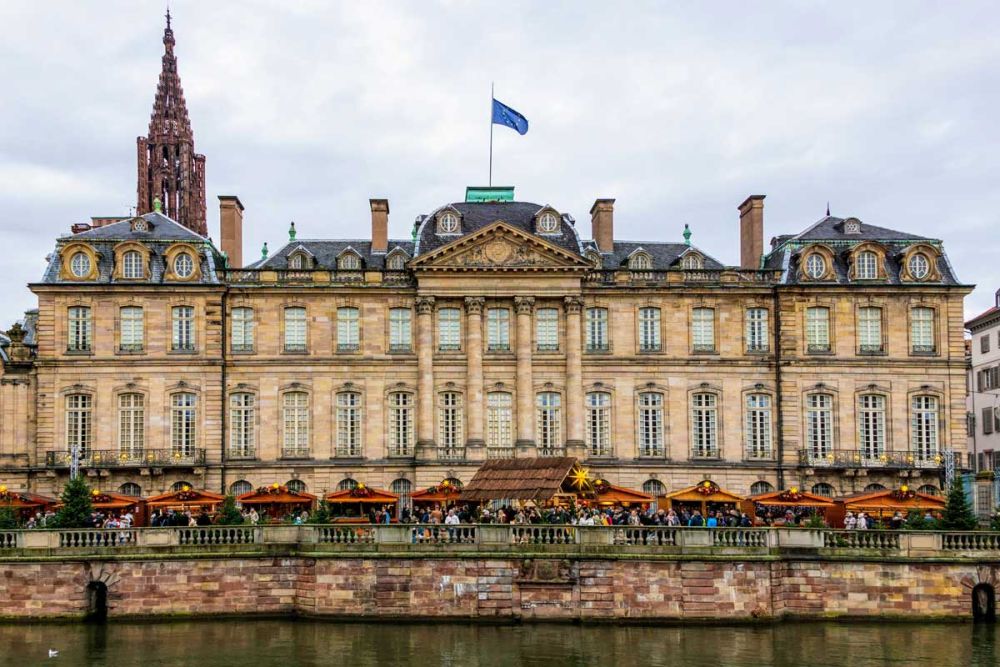

The Palais Rohan in Strasbourg, France, is an extraordinary historical monument that has been a centerpiece of European heritage and tourism for centuries. Built between 1732 and 1742 under the supervision of architect Robert de Cotte, this magnificent palace has served various roles throughout its history, including being the residence of the prince-bishops and cardinals of the House of Rohan, an influential French noble family.
Following its construction in the 18th century, the Palais Rohan has witnessed many historical events. It served various functions — from a municipal government center to a military hospital during the French Revolution. During the 19th and 20th centuries, it underwent several restorations to preserve its architectural beauty. The Palace's significance was further recognized when it was classified as a Monument Historique in 1920, solidifying its importance in French culture and history.
Throughout the 20th century, the Palais Rohan became increasingly important for tourism. Post-WWII restorations led to the establishment of three museums within its walls, which have since become major attractions:
The Palais Rohan has turned from a symbol of ecclesiastical and noble power into a treasure trove for tourists interested in history, art, and culture. Its blend of architectural magnificence and cultural assets makes it a must-visit destination for any tourist in Strasbourg.
Recent tourism trends at the Palais Rohan reflect a growing interest in immersive and educational experiences. Visitors are not only looking to observe the historical and artistic offerings but also to understand the context and significance of what they are viewing.
Moreover, sustainable tourism has been gaining traction, where preservation efforts for such heritage sites are strongly supported by tourist enthusiasm and patronage.
To cater to modern tourists, facilities have seen upgrades in recent years to enhance visitor accessibility and engagement. These include guided tours, multi-language brochures and information plaques, as well as the integration of interactive multimedia tools. Special exhibitions and events are also organized frequently, drawing art connoisseurs and history enthusiasts from all over the world.
The Palais Rohan's embrace of these new tourism trends ensures that it remains a vibrant, educational, and rewarding destination for a broad array of visitors, who leave with a deeper appreciation of Strasbourg's rich historical tapestry.
If you are planning to visit the Palais Rohan, be sure to check the latest visitor information for opening hours and ticket prices. Many recommend combining the visit with a stroll through the historic center of Strasbourg, which is included on the UNESCO World Heritage list, and enjoying the local Alsatian cuisine in one of the city's many fine restaurants.
In conclusion, the Palais Rohan stands not just as a historical edifice, but as a living testament to Strasbourg's dynamic evolution in the heart of Europe. As a tourism destination, it gracefully balances the preservation of its storied past with a welcoming embrace of the present and future.